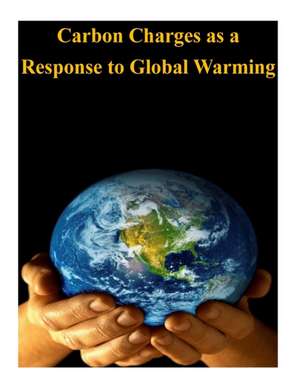Carbon Charges as a Response to Global Warming
Autor Congressional Budget Office Editat de Penny Hill Press Incen Limba Engleză Paperback
Preț: 86.69 lei
Nou
Puncte Express: 130
Preț estimativ în valută:
16.59€ • 17.36$ • 13.81£
16.59€ • 17.36$ • 13.81£
Carte disponibilă
Livrare economică 10-24 martie
Preluare comenzi: 021 569.72.76
Specificații
ISBN-13: 9781523489244
ISBN-10: 1523489243
Pagini: 84
Dimensiuni: 216 x 279 x 4 mm
Greutate: 0.22 kg
Editura: CreateSpace Independent Publishing Platform
ISBN-10: 1523489243
Pagini: 84
Dimensiuni: 216 x 279 x 4 mm
Greutate: 0.22 kg
Editura: CreateSpace Independent Publishing Platform
